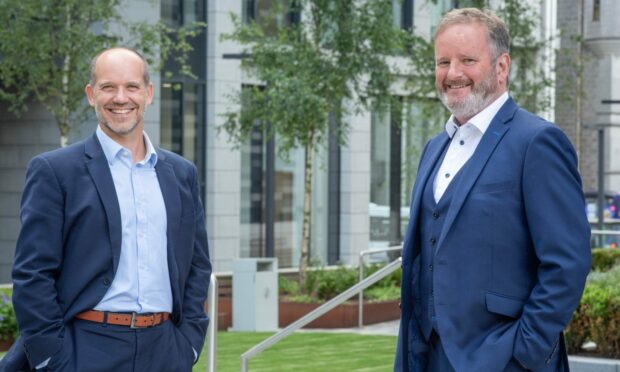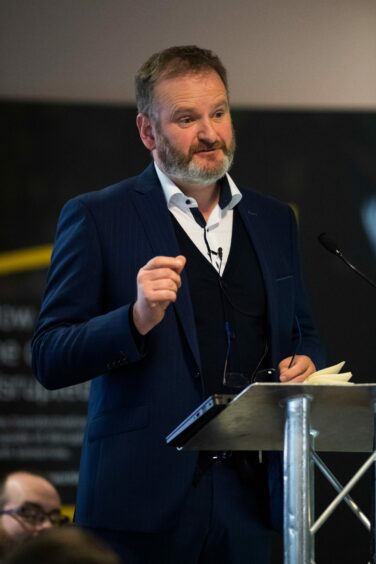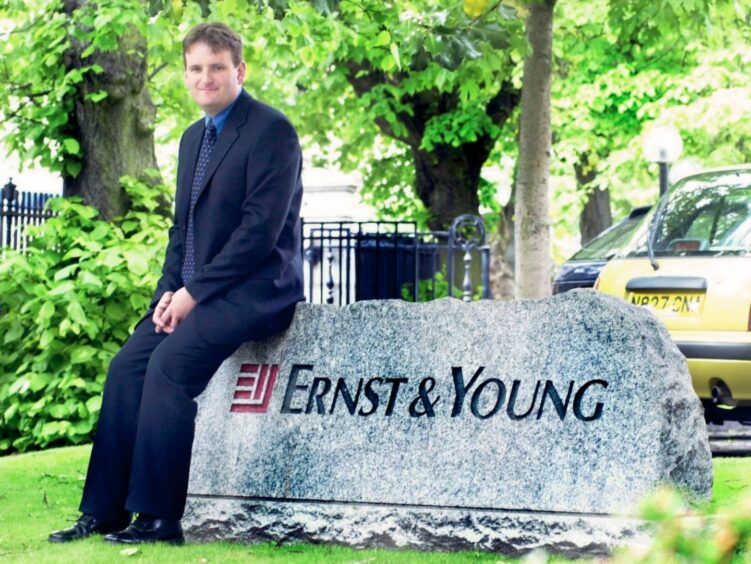One of the north-east energy sector’s top tax experts is heading for the exit door at EY after nearly three decades at the global professional services giant.
Derek Leith, will step down from his job as head of office for EY in Aberdeen at the end of June.
He will also be bowing out from his job as EY’s global head of oil and gas, and his other key role as the firm’s tax “sustainability leader” for the UK and Ireland.
I am going to take all the experience I have gained over the years and the relationships I have developed – that I hope I will be able to maintain – and try to do the best I can for the city.”
Derek Leith, EY’s outgoing managing partner in Aberdeen.
Mr Leith may be leaving EY but he isn’t retiring. The 60-year-old told The Press and Journal he planned to make the most of his vast experience and many business contacts.
He said he aimed to continue to play a key role in shaping the future of the north-east.
And in any case, his wife, Fiona, doesn’t want him hanging around their home in Midmar, Aberdeenshire, all day, he joked.
Who is taking over as office managing partner?
His looming departure paves the way for Moray Barber, currently head of tax for EY in Aberdeen, to take over as head of office from July 1.
Mr Barber, 48, joined the firm as a partner in August 2020, having previously worked for Deloitte and KPMG.
Both men see a bright future for the Aberdeen area if it can capitalise on energy transition opportunities.
But Mr Leith warned the region needs “appropriate support” from government if it is to become a major hub for green energy in Scotland.
Aberdeen’s ‘great role models’
He also said it was becoming increasingly difficult to “get the message across” about the need for more oil and gas production from the UK North Sea amid “an awful lot of noise” over the issue.
Post EY, he aims to keep driving that message in tandem with the efforts of others trying to grow the local economy.
He said: “We have got some great role models in the city – people like Sir Ian (Wood) who continues to do whatever he can to make the economic prospects of the region the best they can possibly be.”
“There is a huge opportunity but I worry about how able we will be to seize it in the absence of appropriate government support from Westminster.
“I hear people say, and I’m not making a political point, they want Aberdeen to be the centre of green energy in Scotland.
“If you are going to say something like that, then where is the substance behind it?
“What are you changing, what are you doing and where are you spending money to make it happen.
‘You need clear policy’
“There’s stuff we can do collectively – businesspeople like Sir Ian and the councils – but it will only take us so far. You need clear policy.”
He added: “It would be easy for me to dwell on the negatives, when I think of the journey this city has had and how successful EY has been in the traditional energy sector.
“Is it all coming to a horrible end? Well, it shouldn’t, if we are wise. I just see a lot of muddle at the moment.
“Politics has become very short-term and soundbites, rather than nuanced arguments.”
Is it all coming to a horrible end? Well, it shouldn’t, if we are wise. I just see a lot of muddle at the moment.”
EY has had “great involvement” in fiscal policy over the years, he said, adding: “That’s one thing I have been talking to Moray about. There are things that can be done to stimulate investment.
“I’ve always majored on the tax levers we can wield that are good for companies and at the same time good for the exchequer. That’s always the sweet spot you want to reach.”
But a “constant trickle” of opposition to continued oil and gas exploration and production is having a “greater undermining effect on the local economy than anything to do with taxation”, he warned.
He added: “It is a Herculean task to get rid of it just like that.
“Are we in danger of prematurely encouraging the extinction of the fossil fuel industry on our doorstep, even though we’re still very dependent on it? I just don’t see the logic.”
During Mr Leith’s time at the firm, EY has gone from a global headcount of around 100,000 to nearly 400,000. Revenue generated by EY’s Aberdeen team has almost trebled since he became managing partner in 2012.
He added: “I would love for this office to continue to represent a very significant proportion of the revenues that we generate in Scotland.
“We are going to see the people who invest in the north-east change quite dramatically over the next few years.
“The key questions are how do we make the most of all this investment in offshore wind, how can we get hold of the carbon capture opportunity and can we really be a hydrogen city? There’s an awful lot of work to do and we will need support from government.”
‘Life with a soldering iron was not for me’
Mr Leith was born and brought up in Wick. He left school at 17 to go to Heriot-Watt University in Edinburgh to do engineering.
“I decided after about two weeks that life with a soldering iron was not for me,” he said.
He went on to study politics and philosophy at Aberdeen University and “stumbled into tax” on taking a job with HM Revenue and Customs.
After five years at HMRC and another five working as a tax advisor for energy giant BP, he joined EY and has been there ever since.
He said he knew he would be moving on when he turned 60, adding: “I am proud of what the team in Aberdeen has achieved. EY has had an enormous influence in tax policy.
“I am going to take all the experience I have gained over the years and the relationships I have developed – that I hope I will be able to maintain – and try to do the best I can for the city.”
Mr Barber – born and bred in Aberdeen – said he was excited about the chance to lay a bigger role in navigating EY’s Granite City-based team through the “incredible challenges” of energy transition. “Nothing is going to be straightforward,” he added.





Conversation